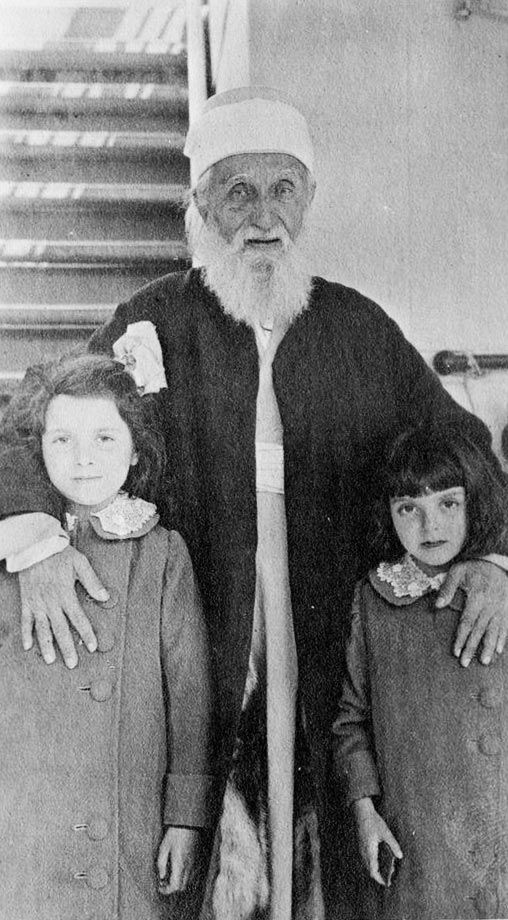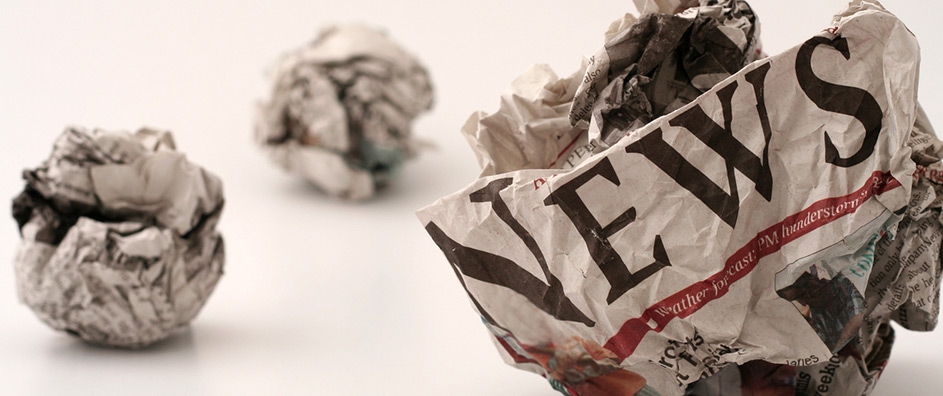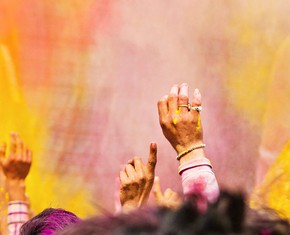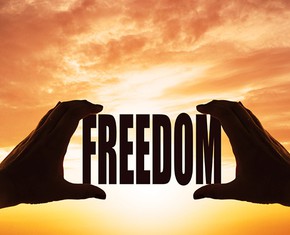The views expressed in our content reflect individual perspectives and do not represent the authoritative views of the Baha'i Faith.
“I’m planning to drive down the California coast tomorrow.” “Watch out! Highway 1 has collapsed! See this photo?!” “Um, wait, that actually happened many years ago.”
I read this actual Facebook conversation yesterday morning. It illustrates in one small way how our media landscape has changed dramatically—kind of like that section of Highway 1 did, wiped out by a landslide in 2011. The engineers and the highway department rebuilt Highway 1 soon after the landslide, but we may not rebuild the credibility and trust we once had in our news media as easily.
How has all that happened? We used to be able to trust what the news media told us, at least for the most part. Sure, journalists might have had agendas or personal political positions, but they normally managed to keep them in the background. Reporters tried hard to report the facts. Objective, unbiased news reached us from a limited number of relatively trusted sources. If you got your news from a newspaper or heard it on the radio or saw it on television, it generally described reality, or at least a reasonable facsimile of reality. Sure, conspiracy theorists and alternative opinions and deliberately falsified reports existed, but they didn’t get much circulation or credence.
But today, that’s no longer always the case. Today, the truth has become an endangered species. Today, journalism has been held hostage by corporate and commercial interests, by politically-motivated forces and by the huge impact of the technological revolution. Fake news has become a business model.
Does this seem like something new? It’s not—it has definitely happened before:
The pages of swiftly appearing newspapers are indeed the mirror of the world; they display the doings and actions of the different nations; they both illustrate them and cause them to be heard. Newspapers are as a mirror which is endowed with hearing, sight and speech; they are a wonderful phenomenon and a great matter. But it behoveth the editors of the newspaper to be sanctified from the prejudice of egotism and desire, and to be adorned with the ornament of equity and justice.
There are good and bad newspapers. Those which strive to speak only that which is truth, which hold the mirror up to truth, are like the sun: they light the world everywhere with truth and their work is imperishable. Those who play for their own little selfish ends give no true light to the world and perish of their own futility. – Abdu’l-Baha, Star of the West, Volume 2, p. 3.

Abdu’l-Baha Aboard S.S. Cedric
Those words—the first ones he spoke to the American press corps as Abdu’l-Baha approached New York Harbor aboard the steamship Cedric on April 11, 1912—seem strangely prophetic today. Uttered soon after the heyday of “yellow journalism,” that famous period in American history when the country’s dominant news media had been taken over by competing, profiteering corporations run by Joseph Pulitzer and William Randolph Hearst, Abdu’l-Baha’s remarks indicted the sensationalist media, calling for fairness, equity and justice in journalism.
The most popular, commercially successful newspapers of that day—screaming “penny tabloids” that peddled scare-mongering headlines, faked interviews, hyped-up celebrity gossip, pseudoscience and misleading claims—were accused of leading the United States into the Spanish-American War, and of responsibility for the assassination of U.S. President William McKinley, after Hearst editor Arthur Brisbane and columnist Ambrose Bierce wrote separate pieces that alluded to his assassination before it happened. McKinley was shot on September 6, 1901, and the New York Journal, Hearst’s newspaper, was widely blamed for his death at the hands of the American anarchist Leon Czolgosz.
The exaggerations, scandal-mongering and outright lies of these popular “fake news” papers, where profits came before truth, wreaked havoc on an uninformed populace and the public policy that resulted—for a while. But they soon succumbed to Abdu’l-Baha’s admonition, and “their little selfish ends” caused them to “perish of their own futility.” They didn’t report the truth, eventually lost their credibility and became extinct—until recently.
Abdu’l-Baha’s warnings about journalism also echoed Baha’u’llah’s themes, when he wrote a half-century earlier about the responsibilities of writers, journalists and editors:
The pages of swiftly-appearing newspapers are indeed the mirror of the world. They reflect the deeds and the pursuits of divers peoples and kindreds. They both reflect them and make them known. They are a mirror endowed with hearing, sight and speech. This is an amazing and potent phenomenon. However, it behoveth the writers thereof to be purged from the promptings of evil passions and desires and to be attired with the raiment of justice and equity. They should enquire into situations as much as possible and ascertain the facts, then set them down in writing. – Baha’u’llah, Tablets of Baha’u’llah, pp. 39-40.
O ye editors of the world: – It behooves ye to be free from prejudice and adorned with equity and justice in order to mirror forth the facts. – Baha’u’llah, quoted by Abdu’l-Baha in Divine Philosophy, p. 185.
Contemporary journalism, when practiced responsibly according to the Baha’i teachings of equity and justice, can reach remarkable heights of effectiveness and service to humanity. It can investigate and expose the truth despite attempts to hide it, and act as the conscience of companies, governments and the population at large. But the echo chamber of social media, which often over-emphasizes and exaggerates the importance of some stories while ignoring other important ones, has now led to a great deal of confusion and misinformation, some of it created to intentionally mislead us.
How do we tell the difference? Abdu’l-Baha asks us to learn to identify the great dichotomy between fancy and fact:
Never can reality and the mere semblance of reality be one, and wide is the difference between fancy and fact, between truth and the phantom thereof. – Abdu’l-Baha, Selections from the Writings of Abdu’l-Baha, p. 177.
In the next essay in this series, we’ll look at the four ways humans use to discern those differences.
You May Also Like
Comments

















However, if we did not otherwise have credible media like MSNBC (TV), the NY Times, Fair Extra
(a small non-partisan newspaper), we would be as misled and easily manipulated as in former
times when the media wholesale bought into the political agenda was in power. What is good about these times is that America is waking up to the deception, corruption and ego mania that
has been around for a long time but also hopefully learning about the dedicated, sincere public
servants ...(political and civil service) in both parties that want to do what is ethical and beneficial
for all citizens.